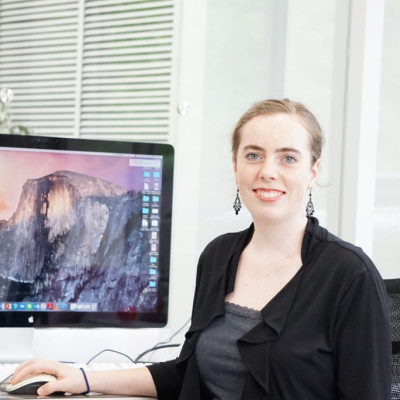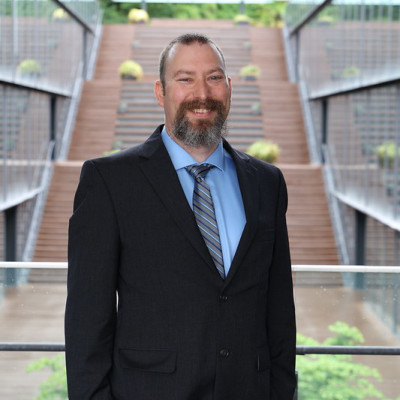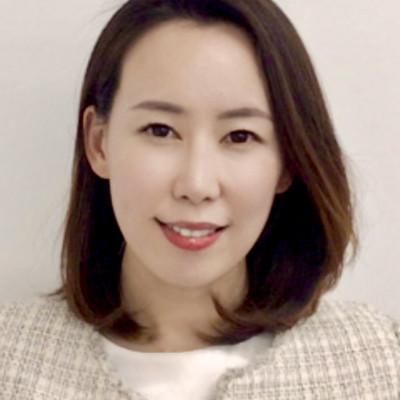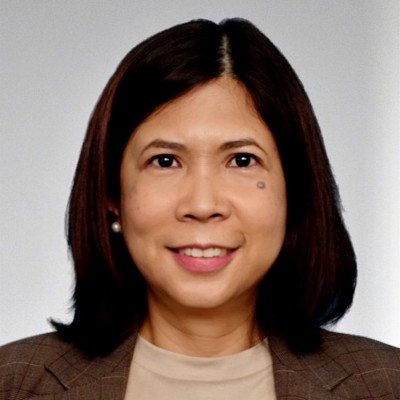Sessions / Location Name: Room 4
Location not set by organizers
Location:
Building: Conference Building < 富山大学 (University of Toyama, Gofuku Campus)
Language Teacher Wellbeing in Times of Change. #3914
Our physiological states and emotions can often be described as ‘contagious’ for the learners we teach (Mercer and Dörnyei, 2020); therefore, if teachers bring negative emotional states to the classroom such as stress or anxiety, it is likely learners will not fully engage. Wellbeing is a state of being comfortable, healthy or happy which is not static and fluctuates over time (Mercer and Gregersen, 2020); thus, consistently acknowledging one’s wellbeing is fundamentally important.
When COVID-19 hit, English language teaching was disrupted with a majority of teachers forced into an emergency remote teaching environment which caused much change and concern. With the balance between professional and personal life challenging to manage (Pourbahram and Sadeghi, 2022), the pandemic and emergency remote teaching has likely encouraged negative influences on wellbeing hindering certain factors such as pedagogy, social engagement and lifestyle habits. Recently, with virus restrictions relaxed, institutions have now transitioned back to the physical classroom.
The presentation highlights findings from a quantitative study regarding English language teacher wellbeing during and after emergency remote teaching using Kern's (2014) Workplace PERMA-Profiler that assesses Seligman's (2011) PERMA model of 5 core areas of wellbeing - Positive emotion, Engagement, Relationships, Meaning and Accomplishment.
Centering Social Justice Issues in Culturally Relevant SDG Materials #3909
Since the establishment of the SDGs in 2015, a great deal of attention has been given to their achievement by the target date of 2030. This date for achievement is fast approaching, but many SDG-related social justice issues show no signs of being resolved. We believe foregrounding social justice issues that are relevant to university students in SDG education can make them more relatable. In English language teaching in Japan, the SDGs have inspired several language and CLIL textbooks. However, these materials tend to treat the SDGs as problems that must be addressed in other countries, rather than in Japan, and the emphasis is solely on the SDGs without connecting them to social issues. To fill this gap, this presentation introduces a teaching method for low-intermediate to advanced learners in which teachers and students collaboratively select social justice issues that they feel are most important ranging from gender equality to ocean pollution and climate justice. This pedagogy uses existing research to develop effective methods to teach the SDGs as both global social justice issues and problems in Japan. We discuss the efficacy of this teaching approach, our student-teacher- collaborative method for developing level-appropriate materials, and initial research findings including student reactions.
Exploring the Impact of Screencast Video Feedback in a Japanese University #3924
In recent years, the utilisation of screencast technology to provide multimedia feedback to students has gained popularity in educational contexts. However, there remains a dearth of examples showcasing this practice within Japanese universities. This presentation aims to help fill this gap by sharing the findings from a semester-long project where formative feedback on student writing on two reading and writing courses was provided using screencast video feedback. The on-going research encompasses two primary data sources: i) reflective insights from the instructor and ii) quantitative and qualitative surveys collected from the students. By presenting the results of the student surveys, this session will contribute to the existing knowledge on screencast video feedback, both in Japan and elsewhere, while the instructor provides an account of their experience in relation to prior research. The session promises to be engaging and dynamic, incorporating multimedia elements, including a video demonstration showcasing the methods employed to deliver the screencast feedback. By exploring the effectiveness and impact of screencast video feedback in a Japanese university context, this presentation offers valuable insights for educators seeking to enhance feedback practices and foster meaningful learning experiences for their students.
International Postgraduate Researcher Authors in Japan: Two Case Studies #3916
Attracting international students for global academic collaborations and cultural exchange is a priority for many countries, including Japan. However, the Japanese system faces challenges in providing sufficient support to meet the diverse needs of its international students. Using a qualitative case study approach, including semi-structured interviews and author profiles (Lillis & Curry, 2010), we explore the contrasting experiences and reflections of two international postgraduate researchers in Japan in the medical field: KG, an Egyptian researcher and NV, a multilingual Southeast Asian researcher, concerning their academic writing and research practices. The experiences of these two international researchers provide valuable insights into the challenges faced by postgraduate researchers in Japan, through highlighting strengths and potential areas for improvement. KG's experience highlights the positive impact of a supportive environment and collaborative practices on enhancing his academic writing and research skills, while NV's disappointing and isolating experience during her doctoral studies underscores the need for improved supervision, ethics, and protection of intellectual property. By understanding the challenges these two researchers faced and evaluating current support mechanisms, we can gain valuable insights and propose solutions to enhance the overall experience for international postgraduate students studying in Japan.
Self-Perceptions of Teaching Capability & Teacher Identity in Tertiary EFL #3907
EFL teachers at the tertiary level are generally expected to be knowledgeable in the English language (the four skills, grammar, vocabulary, and pronunciation) and basic educational theories and practices (“Accelerate Your Career”, n.d.). Furthermore, they are increasingly expected to be well-versed in dialectal variations and other social, cultural, and political issues (Kubanyiova & Crookes, 2016), as well as educational technologies (e.g., CALL) and the latest developments in AI. In addition to these external demands, teachers face internal pressure from their teaching priorities and values (Yazdanpanah, 2015; Burrows, 2019). These pressures impact teacher identity and performance (Cheng, 2021), potentially contributing to imposter syndrome (Breeze et al., 2022). Native and non-native English faculty in Japan were surveyed in English in August 2023 about their self-reported qualifications and preparedness for the EFL field and the effects their self-perceptions have on their conceptualization and construction of their professional identities as qualified tertiary EFL teachers. Results from this exploratory study will be presented at the conference with time for audience discussion of their own perceptions, training, and experiences. Participants will be invited to reflect on their personal navigation of their professional identities and to pinpoint commonalities with other teachers.
Bringing Extensive Reading to Life in a University Professional Communication Course #3895
Studies have shown Extensive Reading (ER) to be effective in not only building reading fluency but also vocabulary and grammatical awareness (Robb & Kano 2013; Waring & Takagi, 2003). However, while many Japanese universities include Extensive Reading (ER) in their English curriculum, it can be challenging to integrate into existing courses while also motivating students to read. This short talk reflects on running an ER program together with a professional communication course over five years for upper-beginner level (CEFR A2) Japanese university students. The talk will focus on how ER was integrated into the course including some of the more successful in-class and online components. It will cover specifics of using post-reading activities where students shared book recommendations through simple mini-poster presentations, speed-mingle activities and weekly ‘book-club’ discussions. Other ways ER was integrated into the course will also be outlined including types of readers used, monitoring progress, and grading.
Seeking space, empowerment, and opportunity #3905
Pressure and constraints can lead to cynicism and resignation, and educators need to understand the constraints upon their practice but, rather than feeling disempowered, they need to empower themselves by finding the spaces and opportunities to manoeuvre (Benson, 2013). For many in the University education field, he search for space and opportunity is one of the reasons we pursue new goals and professional development. This presentation will highlight the significance of addressing a variety of challenges in working and growing in a University setting, as explored through two separate but similar perspectives; a university English lecturer, and a learning advisor. Drawing from their personal and professional development, the speakers will share their journey throughout their first semester, focusing on the learning advisor course they undertook together, the process of adapting to a new workplace, and the delicate balance between work, research, and motherhood. Through personal experiences and insights, the presenters will offer valuable perspectives on these topics, underscoring the importance of overcoming challenges and embracing imperfection in the educational setting, with an emphasis on the role of empowerment, resources, and opportunities that helped in navigating constraints.
Beyond Lessons: The Evolutionary Journey of a Beijing Primary School English Teacher #3903
Amidst the global trend of early English education, China's Ministry of Education outpaced Japan by introducing English as a school subject from the third grade of primary school in 2001, nearly two decades before Japan's similar action in 2020. This presentation provides a deep-dive into a narrative inquiry case study focusing on a primary English teacher in Beijing, tracing her 20-year career trajectory to offer insights into self-growth as an integral element of professional development. I employed Chase's (2018) narrative analysis framework, treating "each account in its entirety and integration among its parts" (p. 14). Using NVivo 14 for data organization, I derived insights from the participant's narrative accounts in two distinct periods: 2003 and 2018. The study unveiled three findings: It charts the participant's evolving identity as a primary English teacher over the span of two decades. It delineates the intricate relationship between primary English teachers and broader Chinese society. Lastly, it outlines the growth and transformation of China's educational system. While comparing these insights with studies of elementary English teachers in Japan, I amplify the importance of the narrative inquiry approach and aim to stimulate meaningful discourse on professional development in primary English teaching within the global context.
Creating a Space for Nihongo in English-only classrooms #3898
Skepticism remains among instructors, students, and other stakeholders in EFL education in Japan on the use of our students’ L1, i.e., Japanese in English language courses in the tertiary level. Several studies have pointed to the possibility of its strategic use through translanguaging, an approach where L1 and L2 are “utilised in the classroom for the purpose of developing the weaker target language” (Turnbull, 2018). Although perceptions persist that using L1 minimizes student opportunities to use their target language, it cannot be denied that its presence is unavoidable whether in skills based and content-based English classes and may even be deemed necessary. I believe it is crucial to recognize using Japanese if constructively employed in university EFL classes because of its potential as a tool in order to facilitate language learning and to enhance instruction. In my proposed session, I hope to exchange ideas and best practices with other university instructors on how they manage the use of students’ L1 for both learning and teaching contexts in their classes especially in intensive or advancedlevel English-language courses. I will also discuss based on my experience how its strategic and judicious use in activities and tasks have had positive impact and will share tangible benefits as seen in students’ performances and output.
*Note: This is a 45-minute presentation that will end at 16:10.










